If 2020 has taught us anything, it’s that technological advancements can’t solve or prevent all the world’s natural disasters. Whether it’s our ongoing reckoning with deadly disease, or the reckoning we all face as we realize that technology itself may be causing the death of our planet and our species, natural disasters are not merely history.
These books about natural disasters explore some of the tragedies that continue to capture the world’s attention long after they occurred—and some of the catastrophes that changed the way we’ve looked at weather and climate in recent years.
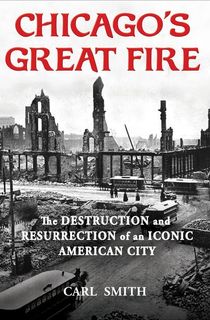
Chicago's Great Fire
This brand-new release explores a fire that shaped one of America’s most important cities. Chicago, in its infancy as a city, erupted into a blaze late on October 8, 1871 which would destroy over three miles of the city and leave over 30% of its residents homeless. Carl Smith brings Chicago alive—both before and after the flames began.
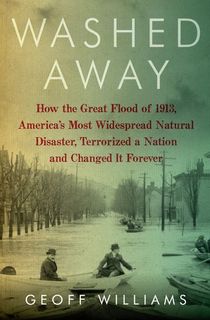
Washed Away
In 1913, a series of storms and tornadoes pounded the Midwest. Soon, rivers and dams in 20 states were bursting. From Arkansas to New Hampshire, floods ruined homes and took lives. Geoff Williams explores the lives lost and saved, the destruction and the repairs, and the policy changes caused by this string of deadly storms.
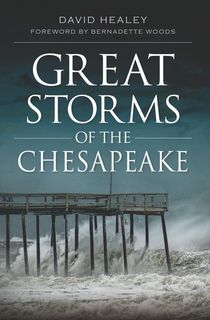
Great Storms of the Chesapeake
This fascinating history explores the storms of the Chesapeake Bay from 1769 to 2010. Combining the history of an area and disaster journalism, author David Healey illuminates new insights into the Chesapeake region.
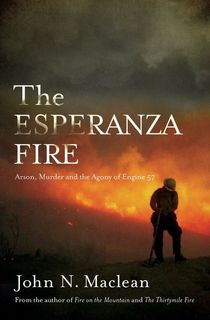
The Esperanza Fire
Every year, the California wildfires seem to blaze higher. Some have natural causes, while others start as man-made terror. This enthralling and terrifying book traces a 2006 fire from its start at the hands of an arsonist through the deaths of heroes who fought to save lives and to the eventual conviction of the man who started the blaze for murder.
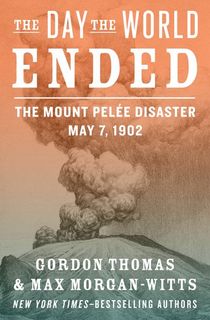
The Day the World Ended
In 1902, over 30,000 people were killed when Mount Pelée erupted. But unlike the residents of Pompeii, the locals had multiple warnings of the terror to come. Thomas and Morgan-Witts show how politics and collusion led to the deaths of thousands, even as scientists raised a ruckus about the dangers approaching.
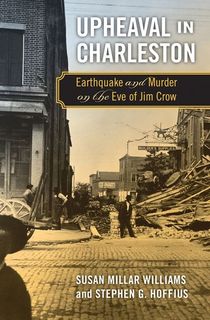
Upheaval in Charleston
Although many Americans think of earthquakes as a West Coast occurrence, tremors have been and can be felt all across the country. In Upheaval in Charleston, readers travel back to 1886 Charleston, a city still struggling with the end of the Civil War. On August 31, an earthquake rattled the city and left 60 people dead. In the midst of the quake, a man named Francis Warrington Dawson, a British Confederate sympathizer threw himself into chaos to save lives. Williams and Hoffius combine the story of Charleston and Dawson to draw a picture of a city grappling with its past, present, and future.
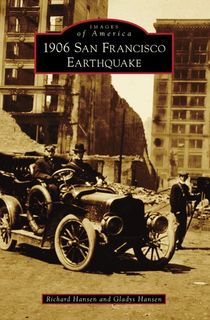
1906 San Francisco Earthquake
This comprehensive exploration of the infamous 1906 quake shows the human impact of one of America’s deadliest earthquakes. To this day, California’s deadliest natural disaster, the 1906 earthquake also left over half the city homeless. Richard and Gladys Hansen include photographs of the city’s damage which drive home the utter devastation left in its wake.

The Yellow House
This National Book Award winner is a memoir of a house, a city, a family, and Hurricane Katrina. Although its focus goes far beyond the 2005 storm that still hangs over our country’s psyche, Broom captures new insights about the aftereffects of a major disaster on a city not prepared to withstand its impacts.

Dark Tides
Boston’s molasses flood sounds like the punchline to a bad joke—but it was very real, and intensely destructive. Despite not being, strictly speaking, a natural disaster, the molasses flood functioned much like a water flood, with the added terror of sticking its victims into place. In 1919, 21 people were killed by the Boston Molasses Disaster, in which two million gallons of molasses poured across the city moving as quickly as 35 miles per hour.

Wave
2004’s major tsunami was caused by the third-largest earthquake ever recorded, creating waves up to 100 feet high even onland. The tsunami waves are believed to have killed nearly 230,000 people across 14 countries. Deraniyagala and her family were on vacation at a Sri Lankan beach when the first waves crashed in. Deraniyagala’s mother, father, husband, and two young sons were swept out to sea—in this memoir, she processes her pain, solitude, and rage, giving an unimaginable tragedy a human face.

1666
London has been the site of more than one major fire. In 1666, London not only experienced its largest fire, but was also the site of a major outbreak of the bubonic plague. 100,000 people were killed by the plague. The Great Fire destroyed 70,000 homes within the City of London. All this, plus a major war, led to devastation across London and England. Rideal explores the tragedies and the triumphs of a pivotal year in London’s history.
This post is sponsored by Grove Atlantic. Thank you for supporting our partners, who make it possible for The Archive to continue publishing the history stories you love.




